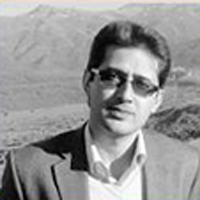Analysis of Equilibrium and Sustainability in an Interest-Free Macroeconomic Model in Contrast with Sargent's Classical Model
Investment, a critical issue in macroeconomics, depends upon rate of interest. Closely related to investment in macroeconomics are equilibrium and sustainability. This paper aims at using an analytical method to identify an interest-free macroeconomic model as opposed to capitalist macroeconomic models. The main premise of present Paper is that this model is sustainable in the same manner as models dependent upon interest rate. Furthermore, proposed model is even more sustainable than the macro-model of Sargent. In order to achieve viable models in an interest-free system, changes were made to a chosen model. Proposed model entails alterations in labor demand, production, consumption, and investment functions as well as equilibrium in the labor market. Since during rising inflation in an interest-free system, the true rate of return for monetary assets is preserved, the motivation for savings is not weakened. Thus, for developing countries faced with inflation and its resulting stagnation, it is preferable to substitute monetary systems based on interest with interest-free systems.
-
The Effect of Components of Knowledge Based Economy on Gharzol Hasana Deposit in public banks
Mahdi Jafari*, , Seyed Javad Emadi Paramkohi
Journal of Computational Economics, -
Three Decades of Research on Employment in the Iranian Sports Labor Market: A Look at Micro, Meso, and Macro Barriers
Fatemeh Saeedi *, Noshin Benar,
Human Resource Management in Sport Journal,


